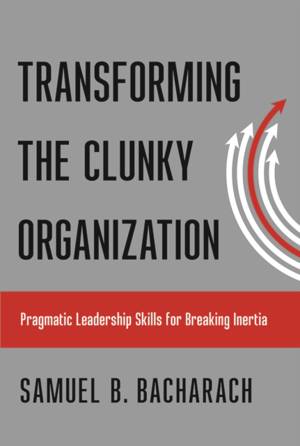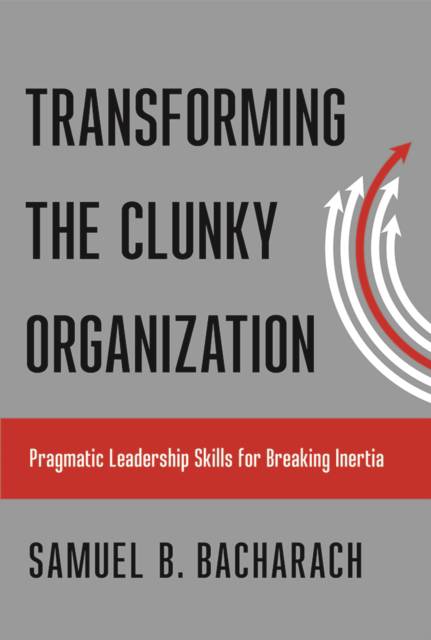
- Retrait gratuit dans votre magasin Club
- 7.000.000 titres dans notre catalogue
- Payer en toute sécurité
- Toujours un magasin près de chez vous
- Retrait gratuit dans votre magasin Club
- 7.000.000 titres dans notre catalogue
- Payer en toute sécurité
- Toujours un magasin près de chez vous
Transforming the Clunky Organization
Pragmatic Leadership Skills for Breaking Inertia
Samuel B BacharachDescription
Organizations, like people, get stuck! They get ensnared in routines and processes, and they fall back into old habits. This is the dangerous period of inertia, the period that precedes failure, when organizations show signs of sluggishness.
In Transforming the Clunky Organization Samuel B. Bacharach specifies why organizations fall into patterns of inertia and details the critical pragmatic leadership skills leaders need to regain organizational momentum. From Alfred Sloan, to Lee Iacocca, to Lou Gerstner, to Indra Nooyi, to Steve Jobs, to Jeff Bezos, Bacharach argues that their pragmatic leadership skills assured that their organization did not get trapped by the doldrums of inertia. He employs case illustrations to identify clunky tendencies and inertia within organizations across a wide range of business sectors including technology, finance, banking, home entertainment, and retail. Illustrations are drawn from organizations such as Amazon, Apple, Borders, Merrill Lynch, Nintendo, Starbucks, and Unilever, among many others.
Bacharach argues that in order to achieve their potential, organizations need to be perpetually involved in two activities. The first is discovery--organizational leaders need to continuously explore new opportunities and transfer new insights into new products, processes, and directions. The second is delivery--organizational leaders need to be able to mobilize support for ideas, sustain and drive these ideas forward, and achieve results. Successful discovery and delivery allows organizations to truly thrive and continuously meet their potential.
Expanding on The Agenda Mover, the first book in the BLG Pragmatic Leadership Series, this book offers a roadmap for individual leaders at all levels to create the agility and synergy needed for the continuous organized flow of information and the movement of ideas. Clunky organizations need leaders that are explorers and innovators in the discovery phase and mobilizers and sustainers to deliver solutions. Transforming the Clunky Organization provides the keys for necessary behaviors that allow leaders to successfully break inertia and foster agility.
This book will appeal to leaders at all levels within organizations, change-management consultants, and business-school professors.
Spécifications
Parties prenantes
- Auteur(s) :
- Editeur:
Contenu
- Nombre de pages :
- 210
- Langue:
- Anglais
- Collection :
Caractéristiques
- EAN:
- 9781501710032
- Date de parution :
- 15-07-18
- Format:
- Livre broché
- Format numérique:
- Trade paperback (VS)
- Dimensions :
- 152 mm x 229 mm
- Poids :
- 312 g







